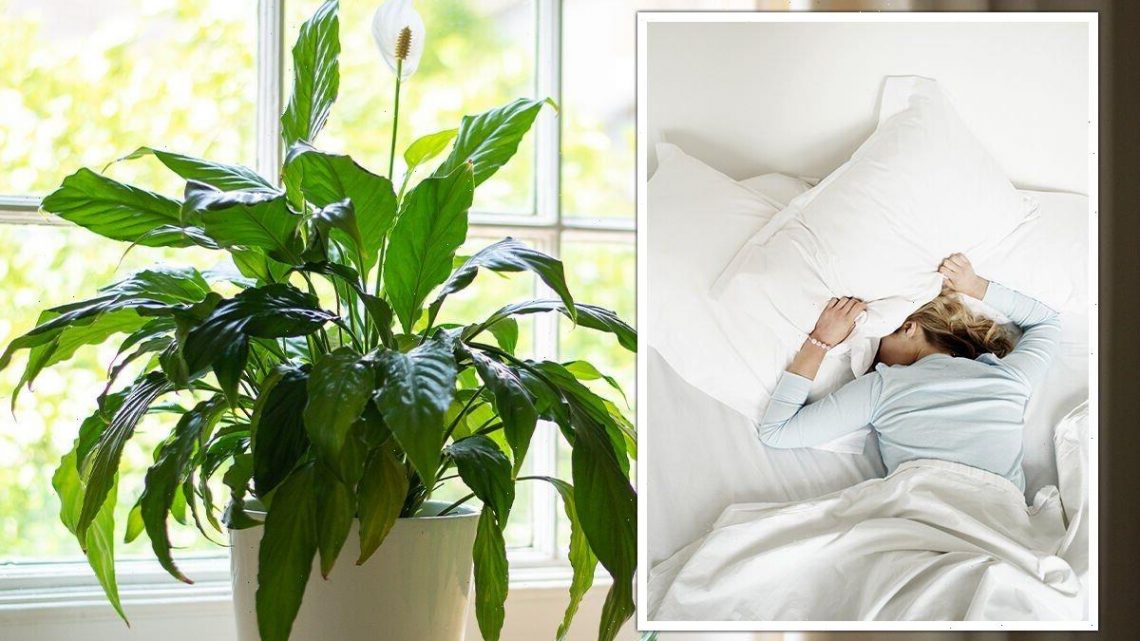
Best houseplants to ‘reduce stress levels’ and help you sleep – ‘removes toxins’
05/16/2022Houseplants: RHS advises on watering techniques
We use your sign-up to provide content in ways you’ve consented to and to improve our understanding of you. This may include adverts from us and 3rd parties based on our understanding. You can unsubscribe at any time. More info
Many people across the UK struggle with getting to sleep at night, especially now the weather is becoming more humid and the mornings lighter. Now, wellness experts at Zeal CBD have shared which houseplants are the best for helping homeowners fall asleep. Not only do these plants help induce sleep, but some of them have other benefits too.
Here are the best houseplants to help you sleep:
Lavender
Lavender is known for helping people to relax thanks to its appealing scent.
Often, the scent is used in pillow sprays, diffusers, room sprays and drawer fresheners.
The experts from Zeal CBD said the “best way” to include lavender in the bedroom is to have a pot plant by the bed.
Luckily for gardening newbies, the plant is relatively easy to care for.
READ MORE: I tried the £1 air fryer cleaning hack – the results were astounding

Lavender plants love warmth and sunshine so it can be kept on a windowsill.
The experts said it’s one of the best plants for those who struggle with anxiety before bed as it’s been shown to reduce blood pressure and heart rate.
Snake plant
Lots of moisture in the air can lead to dust mites and the potential of mould forming which can affect people’s ability to breathe throughout the night.
Snake plants are known to help purify the air by releasing lots of oxygen.
The houseplant also helps to remove harmful chemicals such as xylene, trichloroethylene, toluene, benzene and formaldehyde from the air.
DON’T MISS
How to get rid of pigeons in your garden – 5 easy ways [INSIGHT]
Paint expert shares number one colour to avoid painting your walls [UPDATE]
Davina McCall’s quiet life at her new Tunbridge Wells home [ANALYSIS]
These chemicals can be bad for our health with many people not realising they are in their homes.
Xylene can be found in paint thinner and nail polish remover.
Peace Lily
Air that’s too dry can also cause problems.
A good way to increase humidity in a room is to buy a peace lily which can increase humidity by five percent.
Looking for a new home, or just fancy a look? Add your postcode below or visit InYourArea
Increasing humidity can help people with dry skin and hair and can help those who are susceptible to colds.
Peace lilies are another plant that’s easy to look after.
They don’t require a lot of light and only need light watering.
Aloe vera
The substance inside aloe vera is often used to treat sunburn and ailments.
However, the plant is also a great plant to keep in a bedroom to help people sleep.
Aloe vera releases oxygen at night which can purify the air, making it easier to breathe while sleeping.
The plant also helps to purify the air against benzene and formaldehyde as well.

As a succulent, aloe vera requires little watering as it maintains moisture in its leaves.
Keep it in a sunny place and should be happy.
Valerian
Valerian has pink and white flowers that look pretty and have a sweet scent.
The plant has been used for centuries to help those who struggle to sleep.
Inhaling the scent of valerian root can reportedly help induce sleep and improve sleep quality too.
Adding the petals of the plant into the bath before bed could also help with sleeplessness.
Keep the plant on a sunny window sill as it needs around six hours of sun each day.
Jay Riggs, wellness expert at Zeal CBD said: “Having plants throughout the home not only looks great, but is beneficial for your mental wellbeing.
“By purifying the air and removing any toxins that you may be breathing in, they have a positive effect on your air quality and are even shown to reduce anxiety and stress levels.
“If you take good care of your houseplants and repot them when needed, they should thrive all year round so you can enjoy the aesthetic as well as the health benefits.
“If you’re someone who struggles to stay on top of watering your plants and keeping them alive, look for lower maintenance ones which can survive in less specific conditions.”
Source: Read Full Article

